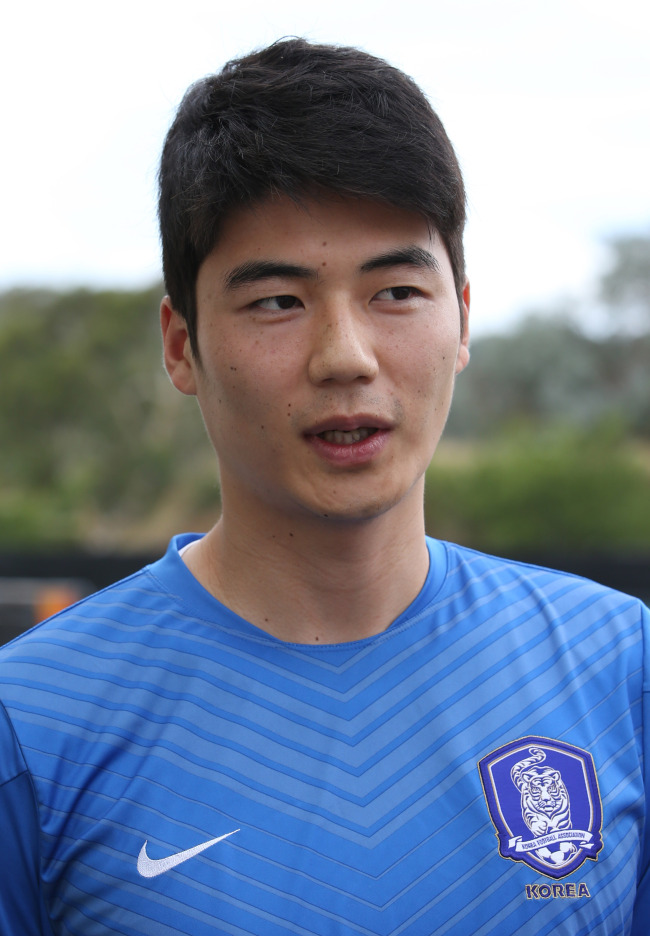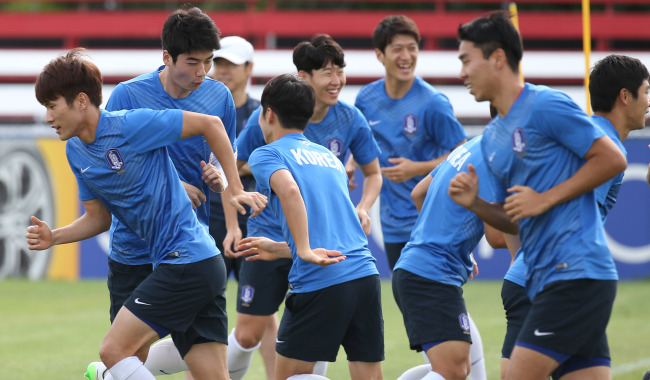CANBERRA (Yonhap) ― The 2015 AFC Asian Cup will kick off Friday with the opening Group A showdown between the host Australia and Kuwait in Melbourne, as South Korea will try to end its 55-year title drought at the continent’s largest football tournament.
The Asian Cup will feature 16 countries divided into four groups, with Sydney, Melbourne, Brisbane, Canberra and Newcastle serving as host cities. The top two nations from each group will reach the knockout stage, and the championship final is scheduled for Jan. 31 in Sydney.
South Korea is in Group A with Australia, Kuwait and Oman, and will open the tournament against Oman on Saturday in Canberra. The next match will be against Kuwait next Tuesday, also in Canberra, followed by the final group match versus Australia in Brisbane on Jan. 17.
 |
Ki Sung-yueng. (Yonhap) |
The Asian Cup was first held in 1956 in Hong Kong and South Korea was the inaugural champion. South Korea hosted the second tournament four years later and defended its title, but that was South Korea’s last Asian Cup championship.
Though South Korea prides itself on being the continent’s football powerhouse ― it has played in each of the past eight FIFA World Cups ― the country hasn’t even been to the Asian Cup final since 1988.
South Korea, however, leads all countries with nine appearances in the semifinals and has finished third in three of the past four Asian Cups.
Head coach Uli Stielike, who took the South Korean reins in October, acknowledged last month that South Korea is currently the third best nation in Asia and said he hoped to use this year’s Asian Cup as a launching pad. He has urged his 23 players to play an aggressive brand of football and take charge of their own destiny at the competition.
 |
The Korean national soccer team takes part in a training session in Canberra, Australia, Wednesday. (Yonhap) |
Stielike’s squad features three goalkeepers, eight defenders, nine midfielders and three forwards. Six players are based in Europe while six others are playing for clubs in the Middle East.
Also, 12 of the 23 were on the World Cup team that crashed out of the group stage in Brazil last summer with one draw and two losses.
Son Heung-min of Bayer Leverkusen is expected to lead the attack from the wings, backing up three forwards ― Lee Keun-ho, Cho Young-cheol and Lee Jeong-hyeop ― with varying degrees of international pedigree. Two national team mainstays, Bolton Wanderers’ Lee Chung-yong and Swansea City’s Ki Sung-yueng, will also be counted on to play key roles in midfield.
Ki stresses team-first approach
South Korean midfielder Ki Sung-yueng, an international veteran at the ripe age of 25, on Wednesday stressed the importance of a team-first approach ahead of the AFC Asian Cup.
“No one player can ever help a team win a championship,” Ki said ahead of the team’s practice at Deakin Stadium. “Everyone has to come together to make it possible.”
Though Ki was singing the worn-out “There’s no I in team” tune, his singular importance to Stielike’s team is matched by few.
Ki has already played in 66 international matches and has represented the country at the past two FIFA World Cups. The combination of his vision, defensive acumen and offensive instincts makes Ki an essential part of the midfield.
South Korea played its final pre-Asian Cup match against Saudi Arabia on Sunday without Ki, who’d only joined the national team earlier that day after playing Premier League matches.
Though South Korea prevailed 2-0, the team sorely missed the on-field general.
“I’ve played a lot of international matches and I feel that I have to live up to expectations,” Ki said.
“From my position, I have to play well with other talented teammates. Even when I don’t get to play in games, I have to stay prepared and respond to an unexpected turn of events.”
Ki said he isn’t yet feeling 100 percent after joining the team later than others but he is hoping to peak just in time for South Korea’s first match.
Stielike hasn’t named his captain yet and Ki is seen as a strong candidate.









